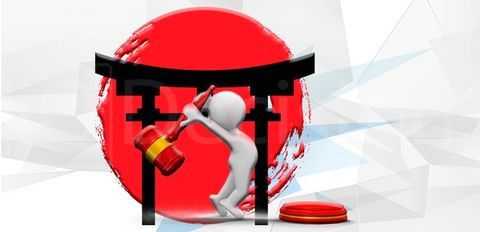Litigation in Japan is initiated as soon as the plaintiff has filed a complaint in writing with a court, indicating a remedy sought & factually substantiating their claim. Once the court has looked into the claim, the defendant is sent a copy of the claim & subpoena. Should the defendant fail to respond, the court will consider it as a sign of consent with the factual information contained in the claimant’s written complaint.
Those contemplating filing a suit in Japan should keep in mind that the local courts can conduct oral proceedings or preliminary meetings to establish legal & factual matters & the required evidence. Conducting oral proceedings or holding preliminary meetings isn’t sequential & usually takes place once in 30 days
Settling a civil dispute in the state of Japan involves no juries, which means that veracity of supplied evidence gets checked by professional judges. It’s up to courts to decide whether evidence supplied by parties should be checked for veracity (and the same applies to questioning witnesses).
Procedures & Deadlines
Resolution of civil disputes in the state of Japan today is governed by a 2003 law. Since the enactment of the law, Japan’s High Court has undertaken a series of indepth reviews of tribunals, publishing their results every 2 years.
Under Japanese legislation, interim relief can be requested by parties. Interim relief may also be applicable when it comes to settling business disputes in Japan’s courts.
Class Action Suits
Filing class action lawsuits in Japan requires keeping in mind that this is a 2-stage process. The 1st stage involves obtaining a decision on liabilities existing between a business operator & their clients. Obtaining a declaratory decision is followed by clients’ filing a claim for damages against a business operator that’s held liable as per the declaratory decision. Following this, a notification of the initiation of the 2nd stage gets forwarded to clients & a public announcement in official newspapers is made. Consumers can then take part in a class action suit.
Services Out of Jurisdictions
Those considering resolving business disputes in the state of Japan can make use of the following methods of delivering documents from abroad:
- through trusted authorities;
- through diplomatic institutions;
- through consulates;
- through centralized authorities;
- through courts;
- through public notifications;
- through couriers.
Japan: Enforcing Foreign Courts’ Decisions
Settling disputes in the state of Japan & enforcing judgments of foreign courts requires following a procedure prescribed in Japanese civil legislation. These are the requirements for recognizing judgements of foreign courts:
- courts oversees must have legal power to try disputes as per international treaties & conventions;
- a subpoena or order required for filing a suit have been served on a defendant;
- foreign courts’ verdicts don’t contradict Japanese government’s policy;
- foreign courts recognize decisions of Japanese courts and vice versa.
Once the above requirements are satisfied, foreign courts’ decisions will take effect & can be enforceable in the state of Japan.
Assisting Foreign Courts
When settling civil claims in the state of Japan, courts overseas may count on the Japanese government’s help in examining judicial documentation & examining evidence (including questioning witnesses).
Access to Court Records
It is possible for anyone to review documentation related to a case (including evidence), the only exception being documents to which confidentiality orders are applicable. Only participants to a dispute & 3rd parties legitimately interested in a case can be provided with access to case-related documentation. Access to case-related documents may be limited if there’s a risk that doing so may result in courts’ being unable to properly execute their duties.
Financing Litigation
Under Japanese legislation, individuals with low income are accorded legal services for free. That's not applicable to the settling of international commercial disputes in the state of Japan since assistance can’t be rendered to legal personalities. That said, it can be provided to foreign individuals residing in the state of Japan.
Conclusion
Considering initiating legal proceedings in the state of Japan? Looking for legal advice on settlement of disputes through litigation in a Japanese jurisdiction? IQ Decision UK can handle that a lot more. Our experienced legal advisors will be happy to give you a hand with any legal issue you’re facing in this regard.

















